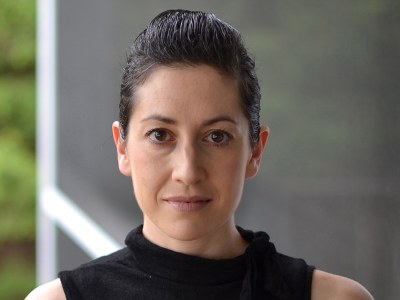Mapping the Humanities Q&A
 Lauren Freeman
Lauren Freeman
Department of Philosophy
2016-17 Commonwealth Center for the Humanities & Society Faculty Fellow
What is your role as a CCHS Faculty Fellow?
As a faculty fellow, my role is to contribute to the intellectual community of the university through research and public engagement and in so doing, to build bridges both across disciplines within the university and also between the university and the larger community.
What is the role, and importance, of an "intellectual community" such as this in A&S? As scholars, and as part of the wider university community?
As a professor, it is far too easy to become cloistered within one’s own department and discipline. In fact, with an ever-growing focus on narrowing one’s research, the profession is set up precisely to foster a kind of intellectual closedness. This can be intellectually dangerous, for it can lead to researchers losing touch with the world outside of their own field of study. That is why centers such as the Commonwealth Center for the Humanities and Society and programs like the Faculty Fellows are so important, now more than ever.
Building communities across disciplines in the arts and sciences is important so that we can broaden discussions, see common goals, share our ideas, and achieve solidarity with colleagues who we might not otherwise meet or engage with. Especially at a time like this, when intellectual pursuits are under attack and need to be defended, we in the arts and sciences need to build coalitions and defend what it is that we are doing: namely, trying to understand the world around us so that we can change it for the better.
There are a variety of interests and academic disciplines represented in the program. How will working among such a diverse group elevate your own research? What are the benefits of participating in a community of diverse scholars such as this?
It can be challenging to discuss your research with non-experts. Though challenging, the benefits can be great. I have always believed that if you are unable to speak about your research to people outside of your field, then you are doing something wrong. Getting different perspectives can propel you to think in new ways that can be incredibly valuable.
For example, I am working on various injustices within the context of health and health care. This year I will have the opportunity to engage with a poet, two historians, another philosopher, and an expert in modern languages. I look forward to embracing the wildly diverse perspectives and critiques that I will receive from the other faculty fellows. Within this context, I hope to be pushed in directions that otherwise, I would not have considered. I am certain that as a scholar and as a person, I will grow in ways that I did not anticipate.
What does "mapping the humanities" mean to you?
To me, “mapping the humanities” means building bridges across different disciplines within the humanities to see connections between our research and our common goals.
What inspired/s you to work in your particular academic field?
Currently I am working on understanding various structural and individual injustices within the context of health and healthcare.
Now more than ever, this area is an important one. It is important not just as an intellectual or academic project; rather, it is important to understand various injustices so that we can work to change them. My work directly engages with current and future health care practitioners as well as those of us who utilize the health care system (namely, all of us!).
